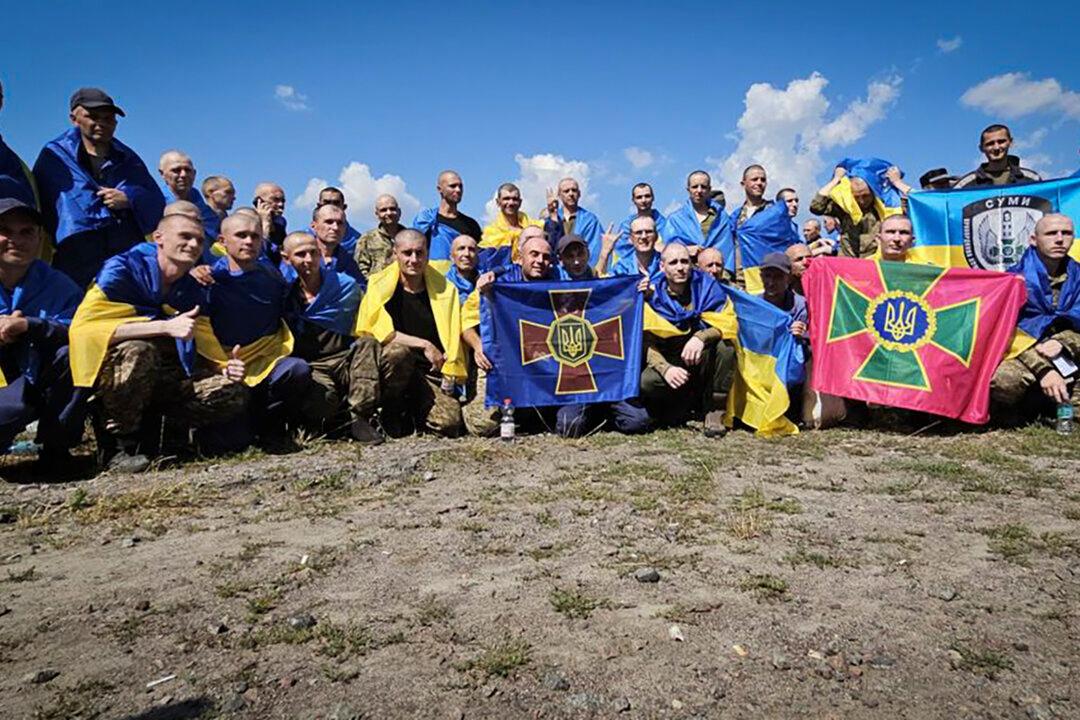Russia and Ukraine have each exchanged 95 prisoners of war in negotiations carried out by the United Arab Emirates, both countries reported on July 17.
The Russian Defense Ministry (RDM) first reported the exchange in a post on Telegram in which it stated that the 95 Russian troops who were “in mortal danger in captivity have been returned from the territory controlled by the Kiev regime.”





